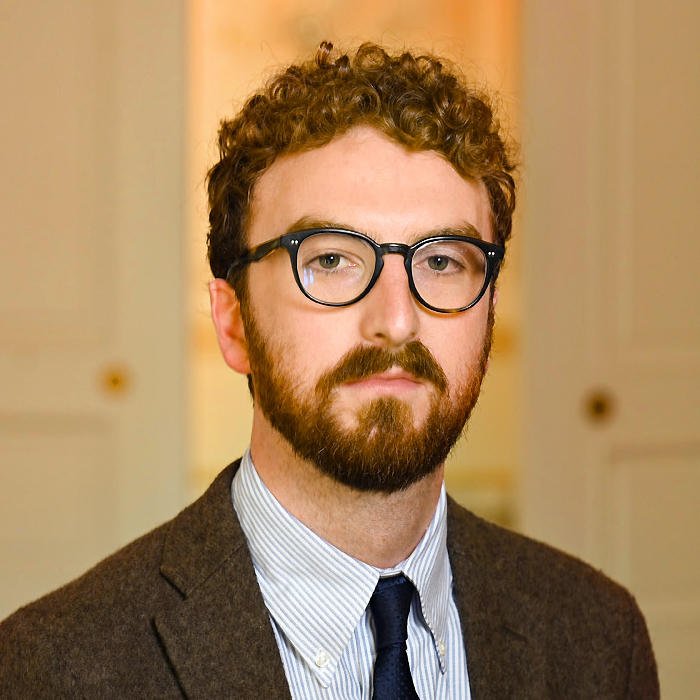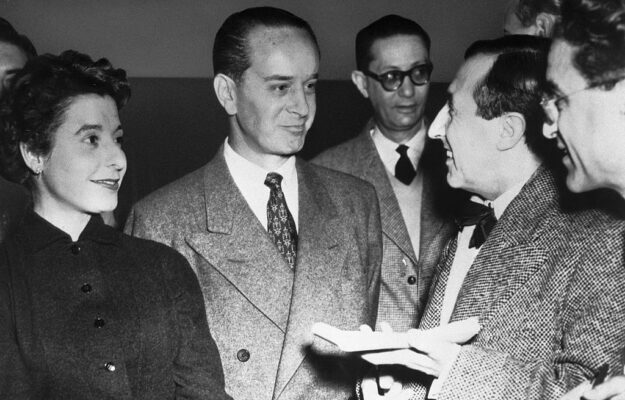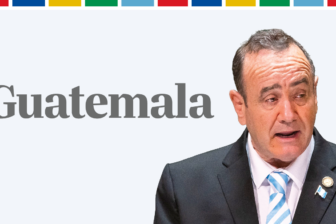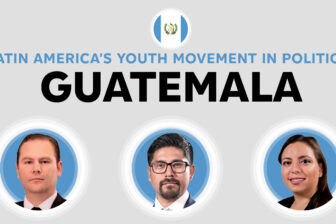One of the most sinister episodes in the history of U.S. entanglement in Latin America forms the subject of Mario Vargas Llosa’s latest novel, Harsh Times. The scene is Guatemala during the first decade of the Cold War when, as U.S. fears of Soviet influence ramped up, President Jacobo Árbenz’s plan for land reform worried the powerful, U.S.-run United Fruit Company.
Vargas Llosa describes what happened next in a narrative that draws both on historical records and his own imagination. United Fruit concluded that Árbenz was not a communist, but that his program would damage their interests in the country, which had been favored by previous military rulers. So they devised a campaign to persuade the U.S. government of something they believed not to be true: that Árbenz represented a communist threat in the American hemisphere.
“The danger, gentlemen, lies in setting a bad example. Not so much communism as democracy in Guatemala.” So Vargas Llosa imagines the plan might have been described by Edward L. Bernays, the “father of public relations” and a key figure in the United Fruit–sponsored propaganda campaign against Árbenz.
The campaign was largely successful, and the CIA went on to carry out Operation PBSuccess, supporting an invasion of the country in 1954 led by Carlos Castillo Armas. The invasion toppled Árbenz’s government and ushered in a chaotic period of violence and anticommunist purges.
Harsh Times picks through these events by following the trajectories of two real people caught in the maelstrom of Guatemalan politics: a dictator’s henchman with a penchant for sex and the occult, and the doctor’s daughter with whom he becomes entangled. The book is made up of short chapters from different perspectives arranged in nonchronological order, which can make it hard to read in places. A dizzying array of generals, coups and assassinations don’t make for easy comprehension.
But Vargas Llosa, assisted by an able translator in Adrian Nathan West, makes up for it with his many gifts. Vivid characterization, dramatic timing, and the right amount of juicy detail combine to keep the narrative exciting.
The author has his own opinions on Guatemalan history. Vargas Llosa confirms in an epilogue that he is “certain that the United States erred terribly in preparing a coup against Árbenz,” and adds that “the North American invasion of Guatemala held up the continent’s democratization for decades at the cost of thousands of lives.” He believes the U.S.’s intervention in Guatemala offered a fateful lesson to a young Che Guevara – present in Guatemala at the time – that to be successful a revolution would have to carry out mass executions in the army and ally itself with the Soviet Union. Such was the road taken in Cuba half a decade later.
Harsh Times was published in Spanish in 2019, two years before Pedro Castillo was elected president of Peru in April 2021, beating Keiko Fujimori in a race that saw Vargas Llosa putting aside decades-old grievances against the Fujimori political clan to throw his support behind Keiko. After losing by a hair’s breadth, she alleged fraud – and Vargas Llosa wrote that he believed there had been “grave irregularities” in the election in an article in El País. He later supported right-wing candidate José Antonio Kast, who lost the recent Chilean presidential election to Gabriel Boric.
Vargas Llosa’s support for Árbenz might accordingly seem incongruous to some on the left with his contemporary political stances. But perhaps this simply illustrates how deep are the wounds left by American intervention in Latin America during the Cold War. Even staunchly anticommunist intellectuals of the right can’t forgive a betrayal like Operation PBSuccess. But in any case, the book’s careful touch, administered to a very difficult subject matter, provides enough of a delight to make the author’s political inclinations seem a secondary concern.








